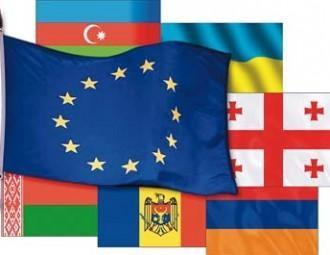Ulad Vialichka: We are still lagging behind

In spite of quite unconvincing stance of the official Minsk in its relations with the EU, there are grounds which allow to count on certain reboot of Belarus-Europe relations.
Representatives of the Belarusan civil society have grounds which allow to count on certain reboot and improvement of Belarus-Europe relations providing that the Rubicon of these relations, namely the problem of Belarusan political prisoners, is crossed. Such an opinion in the interview with the “EuroBelarus” Information Service shared Ulad Vialichka, the member of the Coordination Committee of the National Platform of the EaP CSF.
Let us recall that last weekend Chisinau greeted the 5th annual Eastern Partnership Civil Society Forum, where alongside with representatives from the six countries of the Eastern Partnership and the EU, Belarusan delegation represented by 26 civil society organizations is taking part.
According to Ulad Vialichka, this Forum hardly changes anything for the representatives of the Belarusan civil society, as our country still demonstrates little progress within the European Partnership framework: “We are lagging behind other countries on a number of directions. Basically, we didn’t manage to defreeze EaP project for Belarus yet”. It remains one of the major tasks for the future. “In this sense the Forum didn’t change anything – all the goals we had are topical for the future as well”, - Ulad Vialichka notes.
We have already reported that on the eve of the 5th meeting of the Forum Belarusan National Platform came forward with an open appeal and called on their colleagues in civil society organizations in the partner countries and the European Union with an overview of the current state of the Eastern Partnership, as well as with their view on the challenges and prospects for its development as an important long-term initiative of the European Union in its relations with the neighboring countries, and for the development of the EaP Civil Society Forum as an important part of this initiative. “The assessments given in this appeal about the risks of differentiation and division of countries-members of the Eastern Partnership into leaders and outsiders are clearly voiced, - emphasizes Ulad Vialichka. – The statements made at the Forum, including those made by European Commissioner Štefan Füle, also add to the fact that Europeans understand this problem. Now the possible ways to dissolve this problem are explored”.
However, we should bear in mind that the designated problem still will be appearing, especially after some countries sign the Association Agreement: “Anyway the EU will develop different attitudes towards those who will sign the Agreements and towards those who are lagging behind with the Eastern Partnership program. It will be one of the strategic indicators of positive shift in the relations”.
Besides, the risks attended to in the appeal increase because of the movements on the part of other countries apart from Belarus: “We are still lagging behind and running a risk to lose a lot because of it”.
Today it is evident for everyone that the forthcoming EaP Summit in Vilnius will become a catalyzer of the processes which are currently going on in the countries-members of the Eastern Partnership. “The Summit is going to be a really important event ,and everyone is well aware that certain results will be drawn for the meeting in Vilnius. However, the fact that we don’t have any clue as to what plans Belarusan authorities have, we are not clear with what our prospective and opportunities to move the situation from the dead lock are. Thus, we still don’t know whether the Belarusan government is really going to solve the problem with political prisoners in the country before the Vilnius Summit; if yes, then in what way?”
Today many have the feeling that Summit is to become a certain point, when Belarus-Europe relations can be reviewed and revaluated. “Thus, last week European Commissioner Štefan Füle noted that the agreements achieved during the Summit will serve as a basis for redefining the relations of the EU with the eastern neighbours”, Ulad Vialichka believes.
The member of the Coordination Committee of the National Platform of the EaP CSF says that first of all, it is referred to the countries which are going to sign the Association Agreement; however, some things can be applied to Belarus as well: “It is clear that the unsolved problem of political prisoners in our country disables us to move. And it is hard to say how serious can be the consequences of this problem at the post-Summit period of Belarus-Europe relations”.
Let us also recall that during thee Forum new National Coordinator of the EaP CSF was elected. New Belarusan National Coordinator is Andrei Yahorau, the Member of the Board of International Consortium "EuroBelarus" and the Member of the Coordination Committee of the National Platform of the EaP CSF, the Coordinator of the Expert Working Group 1 of the European Dialog on Modernization and the Director of Centre for European Transformation.
-
03.01
-
07.10
-
22.09
-
17.08
-
12.08
-
30.09








































